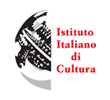|
Luca Vitone
Born 1964 in Genoa/ Lives and works in Rome, Italy, and in Berlin, Germany.
Luca Vitone graduated from the experimental DAMS faculty of the illustrious Bologna University. Since its foundation by Umberto Eco in the 1970s, the DAMS was a centre of structuralism, the system, which must have largely inspired Vitone's art method. Turning his art practice into an anthropological research, the artist studies different social groups, both ethnic minorities (the Basques, the Flemish, the Gypsies) and other communities. He explores their life pattern, sign system, notion of space and peculiar sensibility (through their cuisine and music).
Panorama d'Europa (Panorama of Europe) 2011 Installation
Luca Vitone's Panorama d'Europa project evokes an emblematic didactic attraction of the 18th - 19th centuries intended to give a comprehensive idea of a certain landscape or a historical event through its panoramic view. Vitone covers the walls of a panoramic construction built for the exhibition with text fragments from books and mass media about the life and history of the Gypsies. The artist prompts the spectator to look closely and get a grasp of these remote texts through the oculars of telescopes, thus alluding to the extreme conventionalism of our stereotypes about the Gypsy minority and many other communities around us. The artist describes this project in a following passage: ‘Their lenses draw the eye nearer to and allow the reading of the textual fragments. They tell of a people of non-European origin that has been living among us for centuries but invariably has been perceived as alien. This population is accustomed to being a scapegoat, a target of social frustration, defined through stereotypes – sometimes simplemindedly idealistically, oftentimes disparaging, but invariably banal.’

|